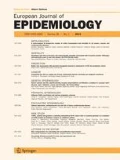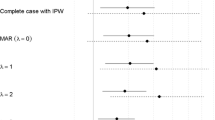Abstract
Background and aim: In epidemiological questionnaire studies results can be influenced by non-responder bias. However, in respiratory epidemiology this has been analysed in very few recently published papers. The aim of our paper is to assess if the results found in our previous postal questionnaire study in an adult population in Northern Finland were biased by non-response. Methods: A random sample of 385 persons from the 1284 non-responders in a previous postal questionnaire study was examined. The same questionnaire as in the original study was again mailed to these persons, and those still not answering were contacted by phone. Results: Totally 183 complete answers (48%) were collected. Lack of interest (56%) and forgetting to mail the response letter (22%) were the most common reasons to non-response. Typical non-responders were young men and current smokers who less frequently reported respiratory symptoms in exercise and asthma than the responders in the original study. Answers collected by phone gave for some questions higher prevalence rates than postal answers. Conclusion: Firstly, in this population the response rate (83.6%) in the original study was high enough to provide reliable results for respiratory symptoms and diseases, only the prevalence of current smoking was biased by non-response. Secondly, the methods used for collecting responses in a non-response study may influence the results.
Similar content being viewed by others
References
Rothman KJ, Greenland S. Precision and validity in epidemiologic studies. In: 1998 Modern Epidemiology, Baltimore, MD: Lippincott Williams & Wilkins 1998: 115–134.
Austin MA, Criqui MH, Barrett-Connor E, Holdbrook MJ. The effect of response bias on the odds ratio. Am J Epidemiol 1981; 114: 137–143.
Sjöström O, Holst D, Lind SO. Validity of a questionnaire survey: The role of non-response and incorrect answers. Acta Odontol Scand 1999; 57: 242–246.
Sears MR, Lewis S, Herbison GP, et al. Comparison of reported prevalences of recent asthma in longitudinal and cross-sectional studies. Eur Respir J 1997; 10: 51–54.
Littlejohns P, Ebrahim S, Anderson R. Prevalence and diagnosis of chronic respiratory symptoms in adults. Br Med J 1989; 298: 1556–1560.
Bakke P, Gulsvik A, Lilleng P, Overaå O, Hanoa R, Eide GE. Postal survey on airborne occupational exposure and respiratory disorders in Norway: Causes and consequences of non-response. J Epidemiol Commun H 1990; 44: 316–320.
De Marco R, Verlato G, Zanolin E, Bugiani M, Drane JW. Nonresponse bias in EC Respiratory Health Survey in Italy. Eur Respir J 1994; 7: 2139–2145.
Rönmark E, Lundqvist A, Lundbäck B, Nyström L. Non-responders to a postal questionnaire on respiratory symptoms and diseases. Eur J Epidemiol 1999; 15: 293–299.
Drane JW. Imputing nonresponses to mail-back questionnaires. Am J Epidemiol 1991; 134: 908–912.
Locker D, Wiggins D, Sittampalam Y, Patrick DL. Estimating the prevalence of disability in the commu-nity: The in.uence of sample design and response bias. J Epidemiol Commun H 1981; 35: 208–212.
Hedman J, Kaprio J, Poussa T, Nieminen MM. Prevalence of asthma, aspirin intolerance, nasal polyposis and chronic obstructive pulmonary disease in a population-based study. Int J Epidemiol 1999; 28: 717–722.
Tibblin G. Apopulation study of 50-year-old men. An analysis of the non-participation group. Acta Med Scand 1965; 178: 453–459.
Janzon L, Hanson BS, Isacsson S-O, Lindell S-E, Steen B. Factors in.uencing participation in health surveys. J Epidemiol Commun H 1986; 40: 174–177.
Criqui MH, Barrett-Connor E, Austin M. Differences between respondents and non-respondents in a population-based cardiovascular disease study. Am J Epidemiol 1978; 108: 367–372.
Jacobsen BK, Thelle DS. The Tromsø heart study: Responders and non-responders to a health questionnaire, do they differ? Scand J Soc Med 1988; 16: 101–104.
Etter J-F, Perneger TV. Analysis of non-response bias in a mailed health survey. J Clin Epidemiol 1997; 50: 1123–1128.
Bergstrand R, Vedin A, Wilhelmsson C, Wilhelmsen L. Bias due to non-participation and heterogenous subgroups in population surveys. J Chron Dis 1983; 36: 725–728.
Kotaniemi J-T, Lundbäck B, Nieminen MM, Sovijärvi ARA, Laitinen LA. Increase of asthma in adults in northern Finland? A report from the FinEsS study. Allergy 2001; 56: 169–174.
Asch DA, Jedrziewski MK, Christakis NA. Response rates to mail surveys published in medical journals. J Clin Epidemiol 1997; 50: 1129–1136.
Boström G, Hallqvist J, Haglund BJA, Romelsjö A, Svanström L, Diderichsen F. Socioeconomic differences in smoking in an urban swedish population. Scand J Soc Med 1993; 21: 77–82.
Author information
Authors and Affiliations
Rights and permissions
About this article
Cite this article
Kotaniemi, JT., Hassi, J., Kataja, M. et al. Does non-responder bias have a significant effect on the results in a postal questionnaire study?. Eur J Epidemiol 17, 809–817 (2001). https://doi.org/10.1023/A:1015615130459
Issue Date:
DOI: https://doi.org/10.1023/A:1015615130459




